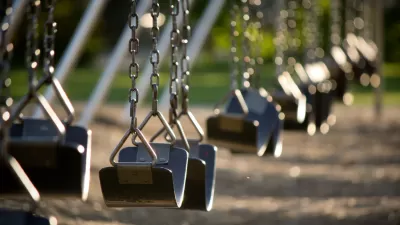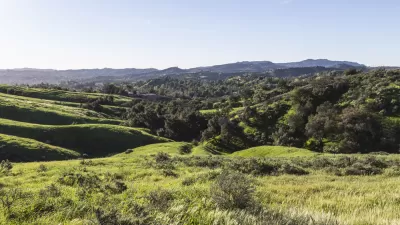As a class assignment, nearly 150 high school students shared their ideas for improvements to Sorensen Park in Lake Los Angeles, California.

In planning and designing new facilities, park and recreation agencies typically seek public input through a meeting or a series of meetings. However, such meetings may not be the most effective way to obtain input that reflects all segments of communities and their diverse viewpoints. Children (under 18 years of age), for example, are often underrepresented or not represented at all. This is certainly alarming but not entirely surprising, considering that the formal or rigid nature of most public meetings can intimidate and discourage kids of all ages from openly sharing their ideas and thoughts. Given that children are key park users and parks contribute significantly to their development and quality of life, we must be intentional and creative in how we engage them in the planning and design of parks, as explained in the article "Engaging Children in the Park Planning Process."
Local educators may serve as important partners in efforts to reach out to the youth, as explained in this Antelope Valley Press article. Recently, nearly 150 students from Littlerock High School in Southern California contributed their thoughts on proposed improvements to Stephen Sorensen Park as part of a writing assignment and survey completed in conjunction with Martin Luther King, Jr. Day. This is all thanks to teacher Joanie Haynes, who decided to get students involved and provide their input during a public comment period for various proposed improvements to Sorensen Park. The students responded to a survey with questions like whether they had ever visited the park, what improvements they would like to see, and what might encourage them to visit the park. Students then had to support their responses with short essays.
FULL STORY: Students propose park improvements

Maui's Vacation Rental Debate Turns Ugly
Verbal attacks, misinformation campaigns and fistfights plague a high-stakes debate to convert thousands of vacation rentals into long-term housing.

Planetizen Federal Action Tracker
A weekly monitor of how Trump’s orders and actions are impacting planners and planning in America.

In Urban Planning, AI Prompting Could be the New Design Thinking
Creativity has long been key to great urban design. What if we see AI as our new creative partner?

King County Supportive Housing Program Offers Hope for Unhoused Residents
The county is taking a ‘Housing First’ approach that prioritizes getting people into housing, then offering wraparound supportive services.

Researchers Use AI to Get Clearer Picture of US Housing
Analysts are using artificial intelligence to supercharge their research by allowing them to comb through data faster. Though these AI tools can be error prone, they save time and housing researchers are optimistic about the future.

Making Shared Micromobility More Inclusive
Cities and shared mobility system operators can do more to include people with disabilities in planning and operations, per a new report.
Urban Design for Planners 1: Software Tools
This six-course series explores essential urban design concepts using open source software and equips planners with the tools they need to participate fully in the urban design process.
Planning for Universal Design
Learn the tools for implementing Universal Design in planning regulations.
planning NEXT
Appalachian Highlands Housing Partners
Mpact (founded as Rail~Volution)
City of Camden Redevelopment Agency
City of Astoria
City of Portland
City of Laramie





























